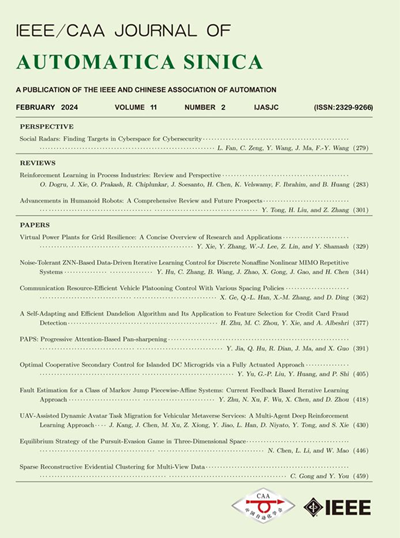基于动态进化博弈的区块链系统押注池选择建模及去中心化增强
IF 19.2
1区 计算机科学
Q1 AUTOMATION & CONTROL SYSTEMS
引用次数: 0
摘要
权益证明(PoS)机制是区块链技术中的共识协议,它根据参与者在加密货币网络中的权益来确定交易的验证和新区块的挖掘。与依靠计算能力来验证交易的工作量证明(PoW)相比,PoS采用了一种确定性和资源效率高的方法来选择验证者。然而,PoS的固有风险是,拥有大量股权的一小部分网络参与者可能会集中,从而危及系统的去中心化并构成安全威胁。为了缓解PoS中的中心化问题,本研究引入了一种名为去中心化权益证明(DePoS)的激励对齐机制,其中第二大利益相关者被选择为具有更高概率的最终验证者。与可验证随机函数(VRF)相结合,DePoS以不确定性奖励最大的利益相关者,从而抑制利益相关者积累最大的股份。此外,创新地建立了一个动态进化博弈模型来模拟权益池的演化,从而促进了PoS和DePoS系统之间的权益池选择动态和平衡稳定性的研究。研究结果表明,DePoS通常通过阻止大量加密货币的积累来促进财富去中心化。本文通过对权益池选择中利益相关者偏好的理论分析和对权益池规模演化趋势的模拟,论证了分布式PoS在去中心化方面相对于传统PoS具有比较优势。本文章由计算机程序翻译,如有差异,请以英文原文为准。
Dynamic Evolutionary Game-Based Staking Pool Selection Modeling and Decentralization Enhancement for Blockchain System
The proof-of-stake (PoS) mechanism is a consensus protocol within blockchain technology that determines the validation of transactions and the minting of new blocks based on the participant's stake in the cryptocurrency network. In contrast to proof-of-work (PoW), which relies on computational power to validate transactions, PoS employs a deterministic and resource-efficient approach to elect validators. Whereas, an inherent risk of PoS is the potential for centralization among a small cohort of network participants possessing substantial stakes, jeopardizing system decentralization and posing security threats. To mitigate centralization issues within PoS, this study introduces an incentive-aligned mechanism named decentralized proof-of-stake (DePoS), wherein the second-largest stakeholder is chosen as the final validator with a higher probability. Integrated with the verifiable random function (VRF), DePoS rewards the largest stake-holder with uncertainty, thus disincentivizing stakeholders from accumulating the largest stake. Additionally, a dynamic evolutionary game model is innovatively developed to simulate the evolution of staking pools, thus facilitating the investigation of staking pool selection dynamics and equilibrium stability across PoS and DePoS systems. The findings demonstrate that DePoS generally fosters wealth decentralization by discouraging the accumulation of significant cryptocurrency holdings. Through theoretical analysis of stakeholder predilection in staking pool selection and the simulation of the evolutionary tendency in pool scale, this research demonstrates the comparative advantage in decentralization offered by DePoS over the conventional PoS.
求助全文
通过发布文献求助,成功后即可免费获取论文全文。
去求助
来源期刊

Ieee-Caa Journal of Automatica Sinica
Engineering-Control and Systems Engineering
CiteScore
23.50
自引率
11.00%
发文量
880
期刊介绍:
The IEEE/CAA Journal of Automatica Sinica is a reputable journal that publishes high-quality papers in English on original theoretical/experimental research and development in the field of automation. The journal covers a wide range of topics including automatic control, artificial intelligence and intelligent control, systems theory and engineering, pattern recognition and intelligent systems, automation engineering and applications, information processing and information systems, network-based automation, robotics, sensing and measurement, and navigation, guidance, and control.
Additionally, the journal is abstracted/indexed in several prominent databases including SCIE (Science Citation Index Expanded), EI (Engineering Index), Inspec, Scopus, SCImago, DBLP, CNKI (China National Knowledge Infrastructure), CSCD (Chinese Science Citation Database), and IEEE Xplore.
 求助内容:
求助内容: 应助结果提醒方式:
应助结果提醒方式:


